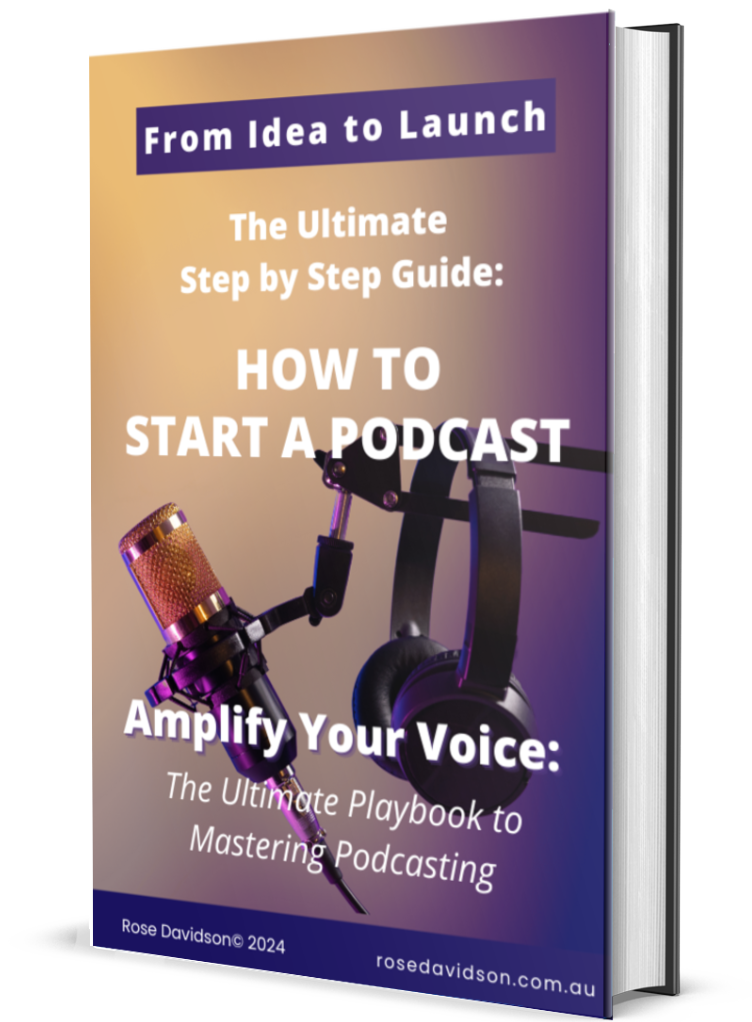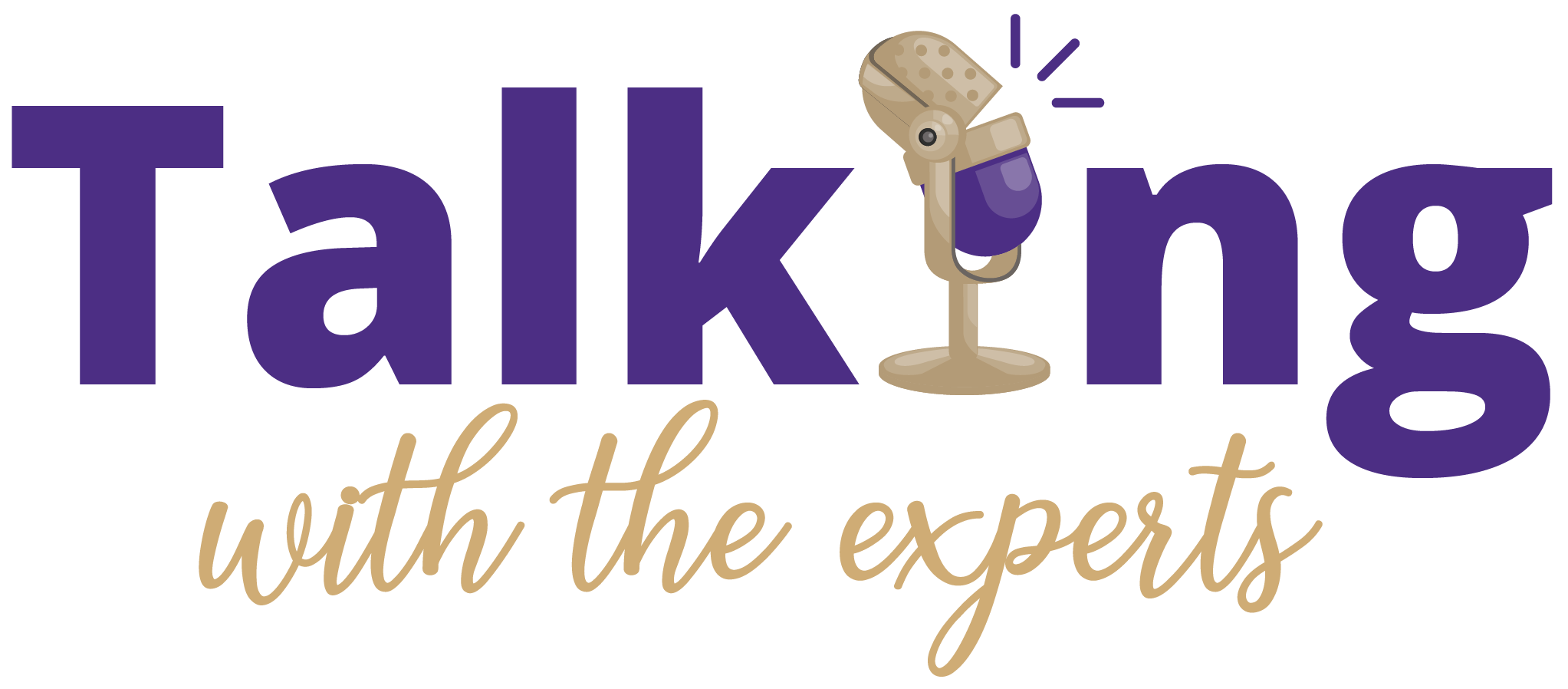Guest
Tracey Rowland
Aggressive Mindfulness: Becoming Who You Choose to Be with Tracey Rowland
Discover aggressive mindfulness with Tracey Rowland to break fear narratives, shift hidden stories, and show up authentically at work and in life.
Tracey's Bio
Tracey Rowland is a speaker, author, and facilitator dedicated to helping people break free from subconscious stories and live authentically. With a Master’s degree in Business (Honours) from Massey University in Auckland, Tracey brings both academic rigour and lived experience to her work. She is the author of The Story of Stories, a book that explores how hidden thought patterns shape our behaviours, relationships, and self-perception. Through her workshops, retreats, and conference presentations, Tracey empowers professionals to recognise when they are stuck in fear-driven narratives, automatic responses, or unhelpful patterns. Her approach, which she calls “aggressive mindfulness,” is about reclaiming presence in the moment, breaking repetitive cycles, and choosing to act from intention rather than reaction. Tracey’s work equips individuals to embody strength without aggression or submission, fostering personal growth, workplace authenticity, and stronger emotional intelligence.
Where to find other episodes
About this episode
Have you ever reacted in the heat of the moment—only to regret it later?
In this episode of Talking with the Experts, Rose Davidson speaks with Tracey Rowland, author of The Story of Stories, about how aggressive mindfulness can free us from fear-driven responses and help us become who we want to be in every moment.
Tracey explains how subconscious stories shape the way we show up at work and in life. These hidden narratives often trap us in cycles of stress, frustration, and miscommunication—leaving us reacting instead of responding. Through her research and lived experience, Tracey has developed practical methods to help individuals identify when they’re stuck in these patterns, and shift into conscious alignment with their authentic selves.
Aggressive mindfulness isn’t about harshness—it’s about taking strong, deliberate action to interrupt unhelpful stories and replace them with intentional choices. The result? You reclaim your power to act with confidence, presence, and integrity—without being aggressive or submissive.
In this episode, you’ll learn:
- How to identify subconscious stories in action
- Signs you’re stuck in automated response mode
- How to shift your thoughts and emotions in real time
- Ways to embody authentic strength and presence at work
If you’ve been looking for a way to stop repeating old patterns and start showing up as your best self, this episode is for you.
📌 Three Key Takeaways
- Learn to recognise subconscious stories that drive your behaviour.
- Spot when you’re in automatic response mode and break free from it.
- Realign your actions and emotions with who you intend to be in the moment.
Outline
Aggressive Mindfulness Concept
- Aggressive mindfulness serves as a technique to pull individuals out of repetitive narrative patterns and help them remain authentic to their desired identity in professional settings
- Tracey developed this approach after recognizing that despite extensive personal development work including reading books and meditation, she continued having the same arguments with her husband for twenty years
- Traditional approaches to personal growth often fail because people continue executing the same behavioral patterns and habits despite consuming self-help content
Subconscious Story Patterns
- Personal narratives running in people’s heads drive automatic behaviors that contradict their desired identity, as demonstrated when Tracey’s “Cinderella story” of feeling unloved triggered aggressive kitchen cleaning behavior
- These thought processes operate disconnected from reality, where family members weren’t actually thinking negatively about Tracey but she interpreted their behavior through her personal story filter
- Bruce Lipton’s research on automatic behavior explains why stopping these patterns mid-execution proves difficult, as the subconscious program runs like a tape player that’s already started
- Argument lists in relationships typically stem from the same underlying story theme, where one trigger activates multiple related memories spanning years
Workplace Applications of Personal Awareness
- Cancel culture and social media accountability create significant business risks when employees exhibit poor personal behavior that can be tracked back to their employers
- Eye-rolling, competitive behavior, and emotional reactions in meetings indicate subconscious programming that prevents staff from properly listening to processes and instructions
- Professional development must now extend beyond technical skills training to include personal emotional responsibility and self-awareness coaching
- Businesses need people with strong emotional fitness on their front lines, as traditional customer service training focusing on scripts and de-escalation techniques is no longer sufficient
Recognition of Automated Responses
- Automated responses become apparent when individuals start communicating in ways that contradict their desired professional identity, often manifesting as passive-aggressive behaviors
- Body language indicators include eye-rolling, turning away during conversations, and other non-verbal cues that reveal underlying behavioral issues among team members
- Blame-focused thinking and constant excuse-making signal that employees have unmanaged underlying stories affecting their performance
- Leaders should inquire about staff wellbeing and external factors affecting workplace behavior without becoming overly personal
Mental Health and Emotional Responsibility
- Mental health fundamentally depends on a person’s ability to rationalize thoughts and prevent them from becoming automatic behavioral programs
- Cultural belief systems embedded from childhood can create workplace hindrances, requiring leaders to work with diverse teams while respecting different cultural approaches
- Multicultural workplaces benefit from understanding and accommodating different cultural communication styles rather than imposing single cultural standards
- Emotional responsibility involves building awareness of personal belief systems and dismantling unhelpful stories that limit professional effectiveness
Practical Techniques for Change
- Sitting with feelings requires allowing emotional intensity to decrease so individuals can examine the underlying thoughts driving their reactions rather than simply experiencing the emotion
- Physical movement including dancing, running, and breathwork helps move trapped energy through the body and can accidentally or intentionally release stored trauma
- Leaders who engage in personal development work demonstrate measurable differences in their communication style, rationalization processes, and meeting behavior
- Breaking thought processes eliminates the need for constant vigilance, as problematic thoughts stop occurring naturally once patterns are disrupted
Next Steps
- Tracey offers corporate workshops and half-day training sessions to help organizations implement emotional responsibility practices
- Her book “The Story of Stories” provides self-guided resources for individuals wanting to unpack their personal narrative patterns
- Future retreat programs will focus on practical relationship skills rather than traditional wellness approaches
Keypoints
- Tracey explains that despite consuming personal growth content, people often remain stuck in repetitive patterns and arguments, citing her own 20-year cycle of the same marital disputes as an example of this phenomenon.
- “Sitting with your feelings” requires allowing emotional intensity to subside so you can listen to underlying thoughts and messages, rather than simply experiencing the emotion without analysis.
- Automatic behavior occurs when people transition into subconscious patterns without awareness, making it difficult to interrupt these responses once they begin running like a tape player.
- Tracey’s “Cinderella story” illustrates how the thought “nobody loves me” drove her aggressive kitchen-cleaning behavior, demonstrating the disconnect between actual circumstances and the stories we create in our heads.
- Argument lists emerge when partners trigger the same underlying story or emotional wound, causing people to recall multiple past grievances that share the same thematic pattern.
- Cancel culture and social media accountability make it critically important for businesses to ensure employees can manage their subconscious behavior and personal emotional responsibility to protect company reputation.
- Professional development should now include personal emotional responsibility training alongside technical skills, as staff who cannot manage their automatic responses may damage business relationships.
- Body language indicators like eye-rolling, turning away during conversations, and passive-aggressive behaviors signal that employees are operating from underlying stories rather than conscious choice.
- Self-awareness becomes essential for change, as people who continue blaming others or making excuses likely have unmanaged underlying stories affecting their work performance.
- Mental health optimization requires developing the ability to rationalize thoughts before they become embedded programs, similar to how people focus on physical health through nutrition and exercise.
- Cultural sensitivity in multicultural workplaces involves understanding and accommodating different belief systems and communication styles, treating people according to their cultural understanding rather than imposing dominant cultural norms.
- Personality traits formed from childhood experiences and beliefs can be dismantled through awareness of thought patterns, even when automatic behaviors occur before conscious thoughts are recognized.
- Physical movement, dancing, breathwork, and energy release activities help move trapped trauma and stuck energy through the body, providing natural ways to process emotional content.
- Tracey offers corporate workshops, couple retreats, and her book “The Story of Stories” on Amazon, aiming to help individuals and organizations break destructive thought patterns and develop emotional fitness.
Talking with the Experts is an award-winning podcast hosted by Rose Davidson since July 2020. With more than 650 episodes, the show features conversations with industry leaders, innovators, and thought shapers across diverse fields. Ranked in the top 5% of podcasts worldwide and consistently charting in Australia and New Zealand, it delivers trusted insights to a global audience.
Each episode is crafted to inform, inspire, and empower listeners with practical strategies and expert advice. Join Rose as she explores conversations that spark curiosity, fuel growth, and deepen understanding.
If you liked this podcast episode, don’t forget to subscribe via your favorite podcast platform and leave a review so we can continue to bring you more episodes!
Be a guest
Ready to start your podcasting journey?
Grab your copy of “The Ultimate Step by Step Guide on How to Start a Podcast“!
🎙️ This e-book is packed with everything you need to know, from planning and recording to launching and growing your podcast. Whether you’re a beginner or looking to enhance your skills, this guide has you covered.
Don’t wait—start turning your podcast dreams into reality today!

Sign up for our newsletter
#MindfulnessAtWork #EmotionalIntelligence #AuthenticLeadership #PersonalGrowth #MindfulLiving #WorkplaceWellbeing #SelfAwareness #TalkingWithTheExperts


